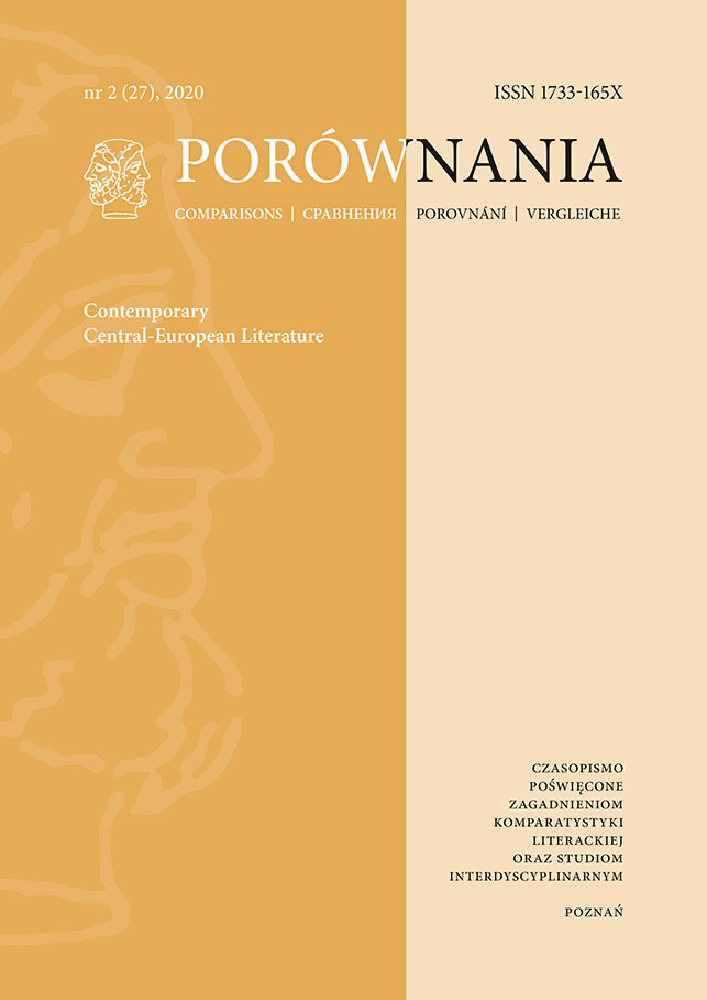Abstract
One can describe the contemporary Hungarian collective memory as an interpretational field of some traumatic historical events of the twentieth century. The essay aims to sketch some important tendencies of the literary representation of these events after the millennium. At first, it outlines the wider social and political contexts of these literary works. Secondly, it models the current Hungarian cultural field as an opposition between two strategies of memory labeling them in Michael Rothberg’s terminology as competitive and multidirectional ones. These approaches to the past are also associated with different ideological implications and literary canons. Finally, with a brief overview of some recent novels, the essay demonstrates some pathways of representing multidirectional attitudes to the past in the Hungarian literary fiction of the 2000s.
References
Alexander, Jeffrey C. Trauma. A Social Theory. Cambridge: Polity Press, 2012.
Apor, Péter. “An Epistemology of the Spectacle? Arcane Knowledge, Memory
and Evidence in the Budapest House of Terror.” Rethinking History 18 (2014): 328–344.
Boym, Svetlana. The Future of Nostalgia. New York: Basic Books, 2001.
Feischmidt, Margit. “Populáris emlékezetpolitikák és az újnacionalizmus: a Trianon- kultusz Magyarországon.” (Popular Memory Policies and the New Nationalism: the Cult of Trianon in Hungary.) Ed. Margit Feischmidt.. Nemzet a mindennapokban: az újnacionalizmus populáris kultúrája. Budapest: L’Harmattan, 2014. 51–81.
Horváth, Sándor. “Goodbye Historikerstreit, Hello Budapest City of Angels; The Debate about the Monument to the German Occupation.” Cultures of History Forum, https://doi.org/10.25626/0037. Accessed 4 December 2015.
Hutcheon, Linda. A Poetics of Postmodernism. History, Theory, Fiction. London and New York, Routledge, 1988.
Kovács, Éva. “Trianon, avagy a ‘traumatikus fordulat’ a magyar történetírásban.” (Trianon, or the ‘Traumatic Turn’ in Hungarian Historiography). Korall 59 (2015): 82–107.
Kulcsár Szabó, Ernő. A Magyar irodalom története 1945–1991. (The History of Hungarian Literature 1945–1991.) Budapest: Akadémiai, 1993.
Rothberg, Michael. Multidirectional Memory. Remembering the Holocaust in the Age of Decolonialization. Stanford, California: Stanford UP, 2009.
Royer, Clara. Imre Kertész: “L’histoire de mes morts.” Arles: Actes Sud, 2017.
Takáts, József. “Az inga visszaleng – Elbeszélő próza a kétezres években.” (The Pendulum Swings Back: Narratives After Millenium). Helikon 59 (2018): 336–347.
License
Utwory opublikowane w czasopiśmie „Porównania”, na platformie Pressto należącej do Uniwersytetu im. Adama Mickiewicza w Poznaniu są udostępniane na licencji Creative Commons Uznanie autorstwa - Bez utworów zależnych 4.0 Międzynarodowe (CC BY-ND 4.0)
Tym samym wszyscy zainteresowani są uprawnieni do korzystania z utworów opublikowanych pod następującymi warunkami:
-
uznania autorstwa — czyli obowiązek podania wraz z rozpowszechnianym utworem informacji o autorstwie, tytule, źródle (odnośniki do oryginalnego utworu, doi) oraz samej licencji
-
bez utworów zależnych — remiksując, przetwarzając lub tworząc na podstawie utworu, nie wolno rozpowszechniać zmodyfikowanych treści.
-
brak dodatkowych ograniczeń — nie można korzystać ze środków prawnych lub technologicznych, które ograniczają innych w korzystaniu z utworu na warunkach określonych w licencji.
Uniwersytet im. Adama Mickiewicza w Poznaniu zachowuje prawo do czasopisma jako całości (układ, forma graficzna, tytuł, projekt okładki, logo itp.).
Autor zachowuje prawa majątkowe, ale udziela zgody Uniwersytetowi im. Adama Mickiewicza w Poznaniu na wykorzystanie dzieła. Autorzy tekstów zakwalifikowanych do publikacji proszeni są o wypełnienie podpisanie i przesłanie umowa (PL) agreement (EN)
Agreement for granting a royalty-free license to works with a commitment to grant a CC sub-license




